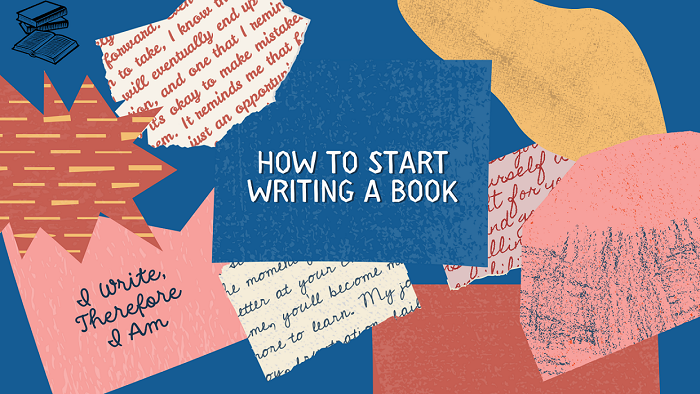
How to Start Writing a Book
Before Writing
Not everyone should write a book. Besides the relevance of the subject, one's own experiences and insights within the chosen field are crucial in deciding whether to embark on a book project or not.
The most important question an author should ask before starting is: Would I read this book myself?
Generally, an author should possess a certain level of experience, whether due to their life experience or their breadth of reading.
Not Stealing the Reader's Time
Especially when writing non-fiction books, it's crucial not to unnecessarily prolong them. Particularly for new authors, it's important to be aware that their new readers not only invest money but also dedicate their time to read their books. The longer a book, the greater the time investment a reader must make.
Literary Selection
What you read not only says something about you, it also determines the course and (long-term) success of your book. Reading good literature forms the basis for your book. It's important to read the most important books in the chosen genre, but also to keep an eye out for inspiration from unrelated fields. Often, very interesting content can be found in books one hadn't even considered. How to choose books?
Topic Selection
Of course, it's up to each author to choose the subject they want to write about. However, there are criteria for selecting topics that define the short and long-term prospects for success.
Timelessness
It's always recommended to write about timeless topics as they will remain relevant even after 20 years. Current trend topics might generate more attention in the short term, but once the trend fades, one's own work quickly becomes irrelevant in the book market. Timeless subjects attract the interest of readers across generations. Nassim Taleb says he writes books that are interesting for both grandchildren and grandmothers.
Niche or General Interest?
Opting to write on a niche topic means less competition and better chances of visibility. (Domain related to the topic) However, a topic of general interest reaches a broader audience. Generally, gaps in the literary landscape are particularly intriguing for authors, especially in subjects of general interest.
Useful or Inspiring?
People read books either to learn something or to be inspired. The difference lies in their proximity to a specific use case. Useful books describe concrete processes and tools concerning a previously defined problem. Inspirational books offer more general insights that can be generalized and applied to the reader's problem areas. The author should be clear whether they are being useful or inspiring, and both the book title and description should communicate this.
Who am I and what can I write about?
Ultimately, the contents of the book reflect the author's interests and experiences. Jot down original thoughts and connections. To appear authentic, the following motto should be considered: Don't write if there's nothing to write about.
Phases of Writing
Through writing, we can discover things. By putting thoughts on paper and collecting them, we organize our ideas, revealing necessary paths for the development of our texts and assessing their plausibility when we engage with them honestly. This process unfolds in several intermediate steps. From my own experiences, I can outline three phases of writing that I have personally observed.
The ideation phase cannot be planned. While on vacation, during a walk, whenever we are relaxed, ideas suddenly emerge out of nowhere. It is important to jot them down and gather them in a suitable place.
In the organizing phase, I review the collected text material and find headings and subheadings for the content structure of my book. It often requires reorganizing the contents. A structure gradually emerges as more content is written down.
During the execution phase, one connects the individual ideas and paragraphs. A magical effect occurs during this process. While writing, new insights automatically become visible. An idea often acts as a catalyst for a higher-level understanding when it encounters other ideas within a text. That’s why I refer to this type of writing as catalytic writing.
There is no rigid sequence in which these phases must be traversed. One approaches a topic iteratively, requiring multiple loops in each phase. The choice of phase depends on the current mood. On one day, you may feel more inclined to organize, while on another, you may feel more like writing. Inspiration is transitory, and one must immediately seize it when it arises.
How to become a scholar?
Join the Newsletter
Follow: LinkedIn | Facebook | X (Twitter) | Instagram